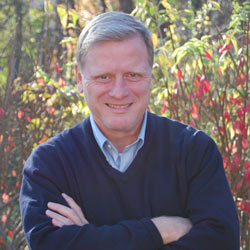September 11, 2020
Dear Drama Observers,
For those of us in our early twenties or older, the images of 911 will never be erased from our memories. We all remember right where we were when we heard the news. I had just finished an appointment in my office and checked my messages. My heart raced as I heard the voice of my wife telling me the Twin Towers had been hit by planes, the Pentagon was on fire, and we were under an attack of some sort, though the details were yet unclear.
This was prior to streaming online videos so I wasn’t able to see the images for myself until I got home later that evening and turned on the television. I’m sure my face looked, as did everyone else’s, like the faces of those characters in Independence Day who watched incredulously as some giant alien mothership destroyed their city.
But alongside images of horror was another that stood out by way of contrast. After evacuating the Capitol building earlier in the day, about 150 members of Congress from both parties stood on the Capital steps and observed a moment of silence and spontaneously began singing, “God Bless America.”
This astounding display of unity prompted these remarks nine days later from President Bush as he spoke before Congress:
“I thank the Congress for its leadership at such an important time. All of America was touched on the evening of the tragedy to see Republicans and Democrats joined together on the steps of this Capitol singing ‘God Bless America.’”
I bring this up not to express some those-were-the-good-ole-days sentiment but to contrast our national response to a crisis then as opposed to the response now. About three thousand American lives were lost on 911 but, as of this writing, we’re quickly approaching 200,000 American pandemic deaths. But we’re not unified at all. In fact, some say we’ve not been this divided since the Civil War. Why is that? Nelson Mandela once observed:
“Our world is not divided by race, color, gender, or religion. Our world is divided into wise people and fools. And fools divide themselves by race, color, gender, or religion.”
As readers of this weekly email are well-aware, I make a similar distinction between reasonable people and those who are unreasonable—the ones we sometimes refer to using terms of derision, fool being one them. Reasonable people have the desire and willingness to get along despite their differences. Fools have no such capacity and value fighting above civility, division above unity, and allegiance to tribe above allegiance to truth. As I often illustrate in these missives, fools care more about being right than the relationships destroyed by their insistence on rightness.
Reasonable people strive for harmony while fools thrive on division.
Abraham Lincoln once said,
“When I’m getting ready to reason with a man, I spend one third of my time thinking about myself and what I’m going to say, and two thirds of my time thinking about him and what he is going to say.”
Widely considered a wise man, Lincoln cultivated the art of compromise which could hopefully enable people with greatly disparate views maintain a union. But he was a realist. Years before the Civil War, he warned in what became known as his Lyceum Address,
“Shall we expect some transatlantic military giant to step the ocean and crush us at a blow? Never! All the armies of Europe, Asia, and Africa combined, with all the treasure of the earth (our own excepted) in their military chest, with a Bonaparte for a commander, could not by force take a drink from the Ohio or make a track on the Blue Ridge in a trial of a thousand years.
At what point then is the approach of danger to be expected? I answer. If it ever reach us, it must spring up amongst us; it cannot come from abroad. If destruction be our lot, we must ourselves be its author and finisher. As a nation of freemen, we must live through all time or die by suicide.”
Wise words for foolish times.
Till next week.



Awesome, maybe voices of the past will be heard. I have sent to others, lets hope these profound words can awaken each heart.
Thanks for your kind words, Jody.
I did what Jody mentioned… I sent it around to both sides of the aisle of the family and felt as if I received a little more sanity from your comforting words and quotes! The full length serenity prayer has been a grounding Influence and intentional mindset during these turbulent times.
I can certainly see why the words of the Serenity Prayer would be comforting! We all need as much grounding as we can get in this topsy turvy environment. I appreciate your comments.